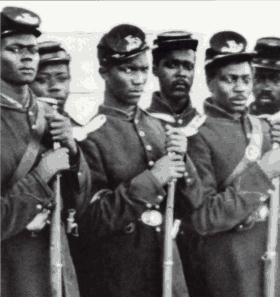 Like (I presume) every American, I today feel the weight, glory, and sheer spiritual magnitude of Memorial Day.
Like (I presume) every American, I today feel the weight, glory, and sheer spiritual magnitude of Memorial Day.
I’m the son of a WWII veteran; when I was eight (and while standing at a urinal in a boy’s bathroom at my elementary school, where apparently I used to do all my big thinking), I realized that I was too young to ever have to serve in Vietnam, and would more than likely be too old to serve by the time America got involved in another war.
Worked for me.
Not that many years later, I watched as American soldiers returned home from Vietnam.
Not exactly what you’d call pretty.
Freakin people.
We dare to want what we want, but balk at the true cost of it.
I was in my early thirties when the first George Bush decided we needed to lose the lives of at least some American soldiers in the deserts of the Middle East. When the United States Air Force launched the aerial bombardment campaign that began the Gulf War, the woman who lived in the apartment below my wife and me came knocking on our front door. She was an historian from Ireland who was teaching at a nearby university.
“Turn on your TV,” she said. “The Americans are doing it again.”
It was all I could do not to take back from her the super-cute kitten we’d given her not two days before.
Today the below has been on my mind. It’s the the breathtakingly poetic speech that Abraham Lincoln delivered on Thursday, November 19, 1863, at the dedication of the Soldiers’ National Cemetery in Gettysburg, Pennsylvania, four and a half months after the Union armies defeated those of the Confederacy at the decisive Battle of Gettysburg. (To learn more, see the Wikipedia entry on the Gettysburg Address.)
Four score and seven years ago our fathers brought forth on this continent a new nation, conceived in liberty, and dedicated to the proposition that all men are created equal.
Now we are engaged in a great civil war, testing whether that nation, or any nation, so conceived and so dedicated, can long endure. We are met on a great battle-field of that war. We have come to dedicate a portion of that field, as a final resting place for those who here gave their lives that that nation might live. It is altogether fitting and proper that we should do this.
But, in a larger sense, we can not dedicate, we can not consecrate, we can not hallow this ground. The brave men, living and dead, who struggled here, have consecrated it, far above our poor power to add or detract. The world will little note, nor long remember what we say here, but it can never forget what they did here. It is for us the living, rather, to be dedicated here to the unfinished work which they who fought here have thus far so nobly advanced. It is rather for us to be here dedicated to the great task remaining before us—that from these honored dead we take increased devotion to that cause for which they gave the last full measure of devotion—that we here highly resolve that these dead shall not have died in vain—that this nation, under God, shall have a new birth of freedom—and that government of the people, by the people, for the people, shall not perish from the earth.












